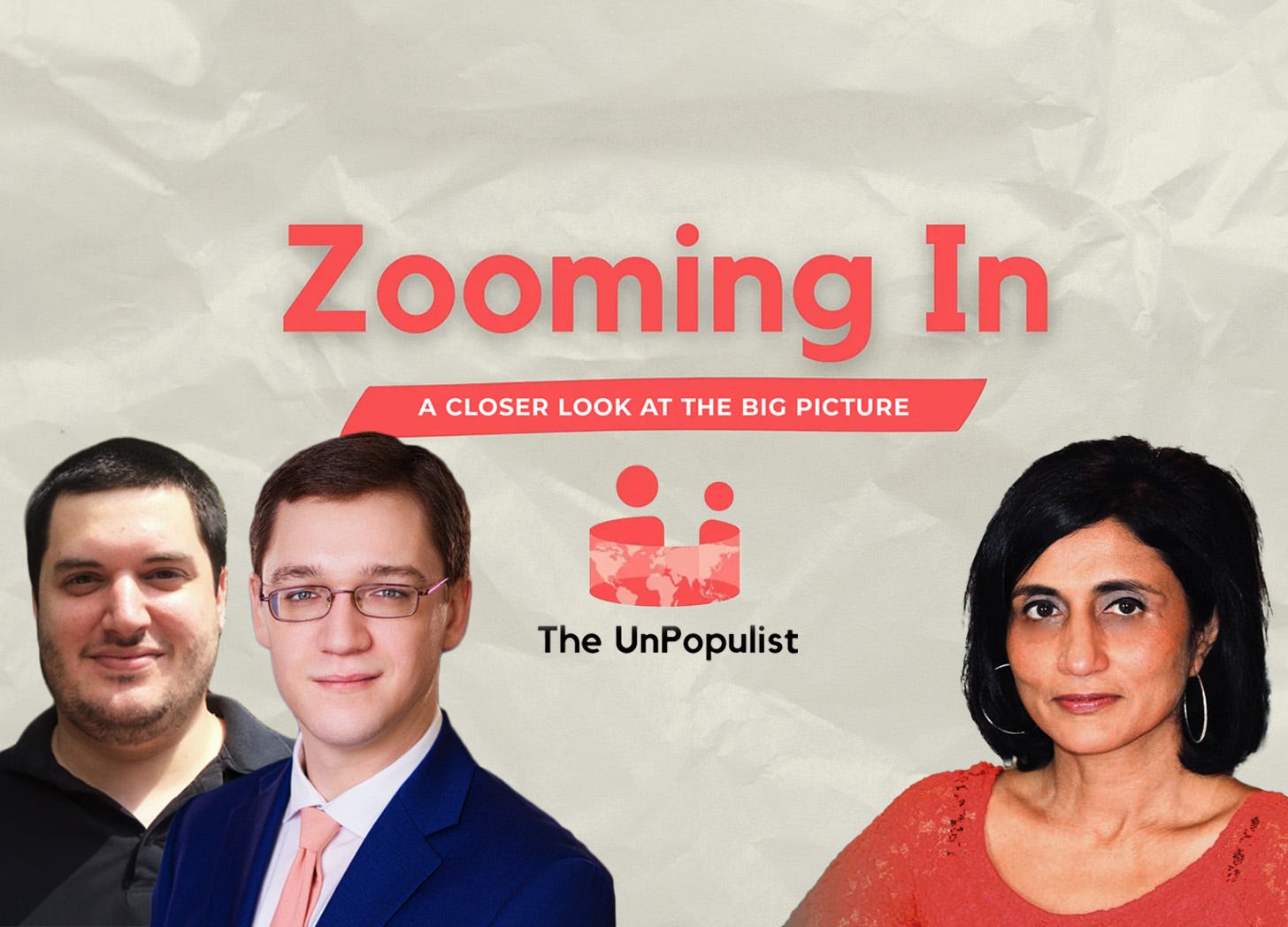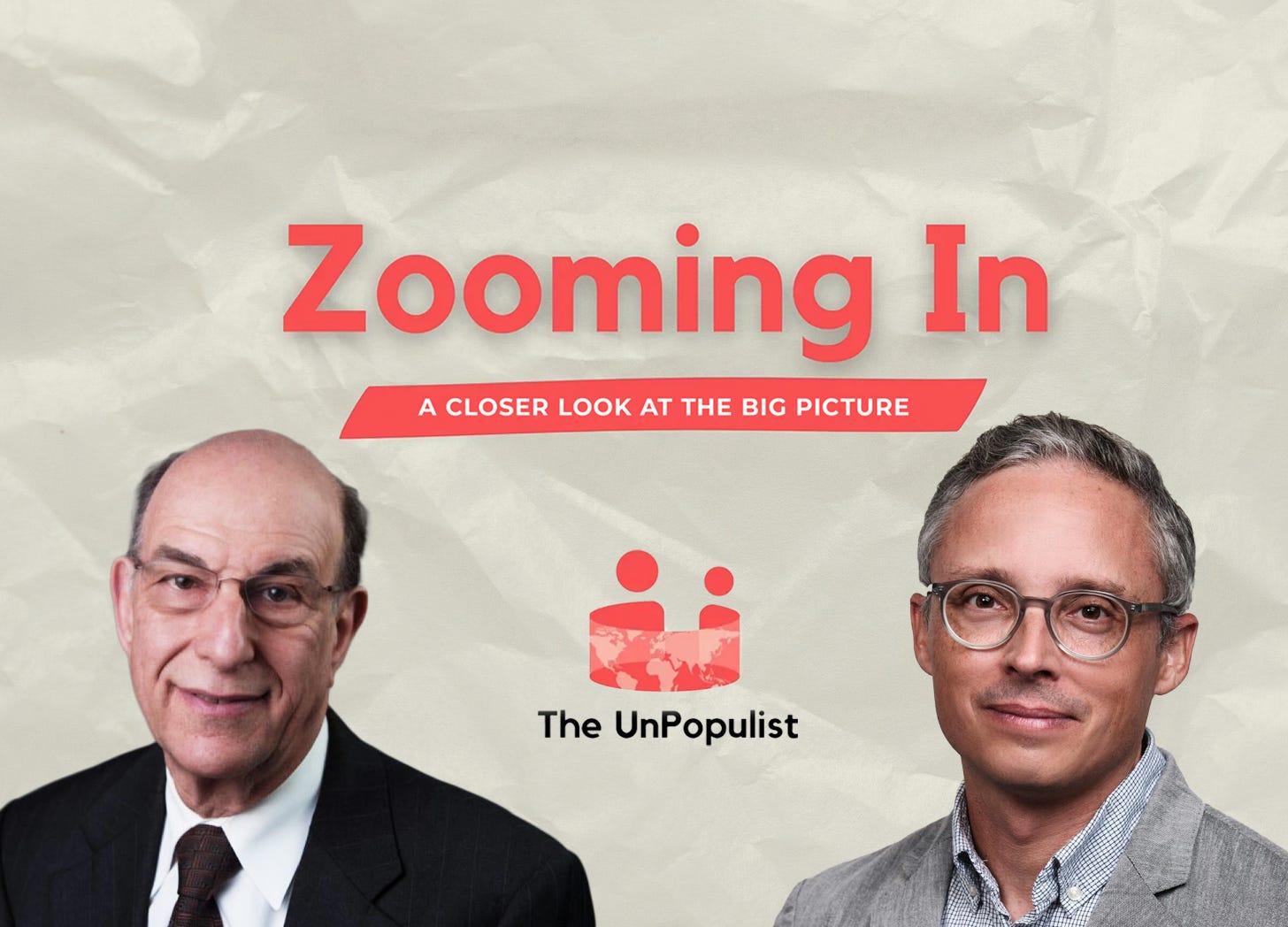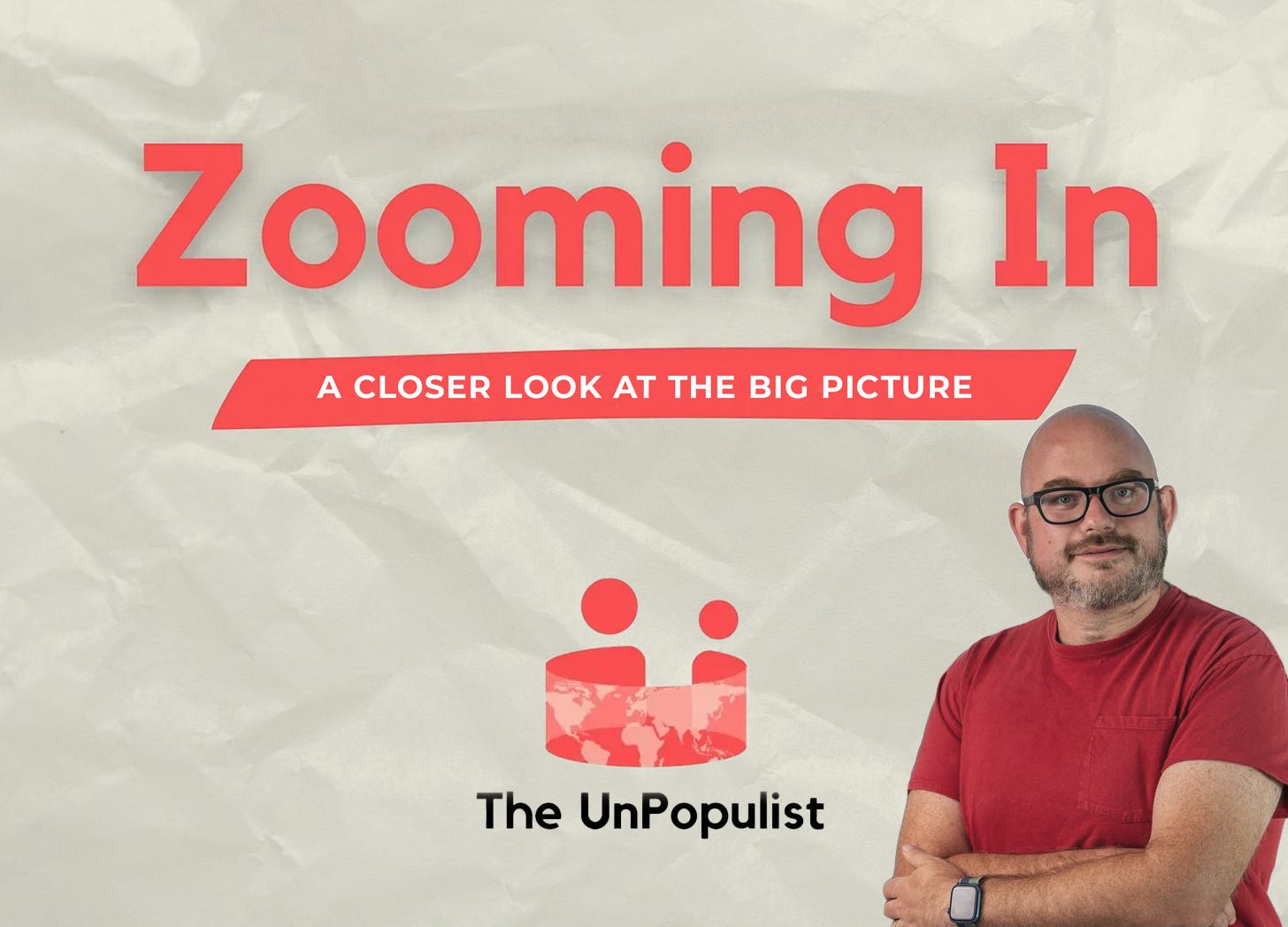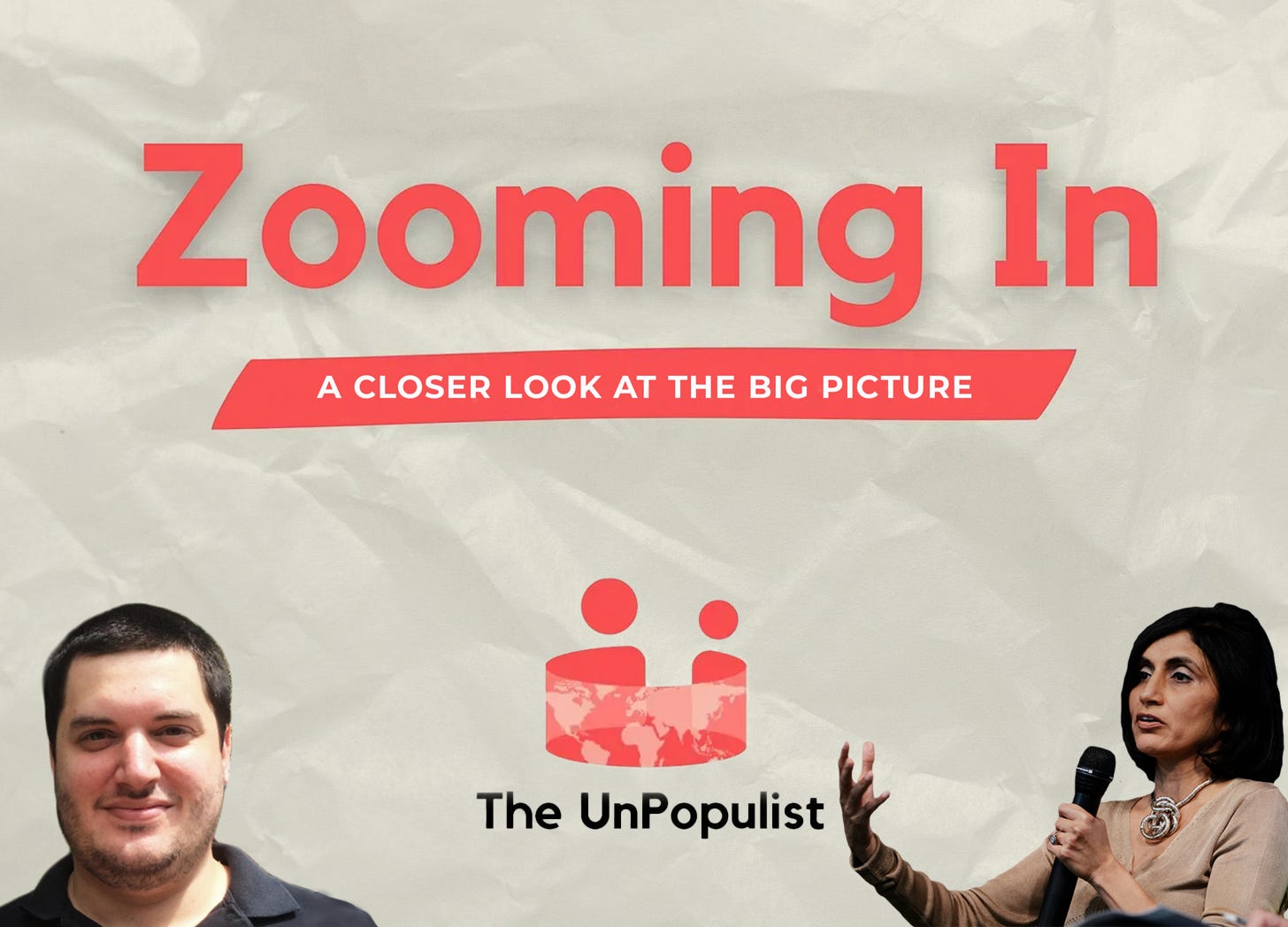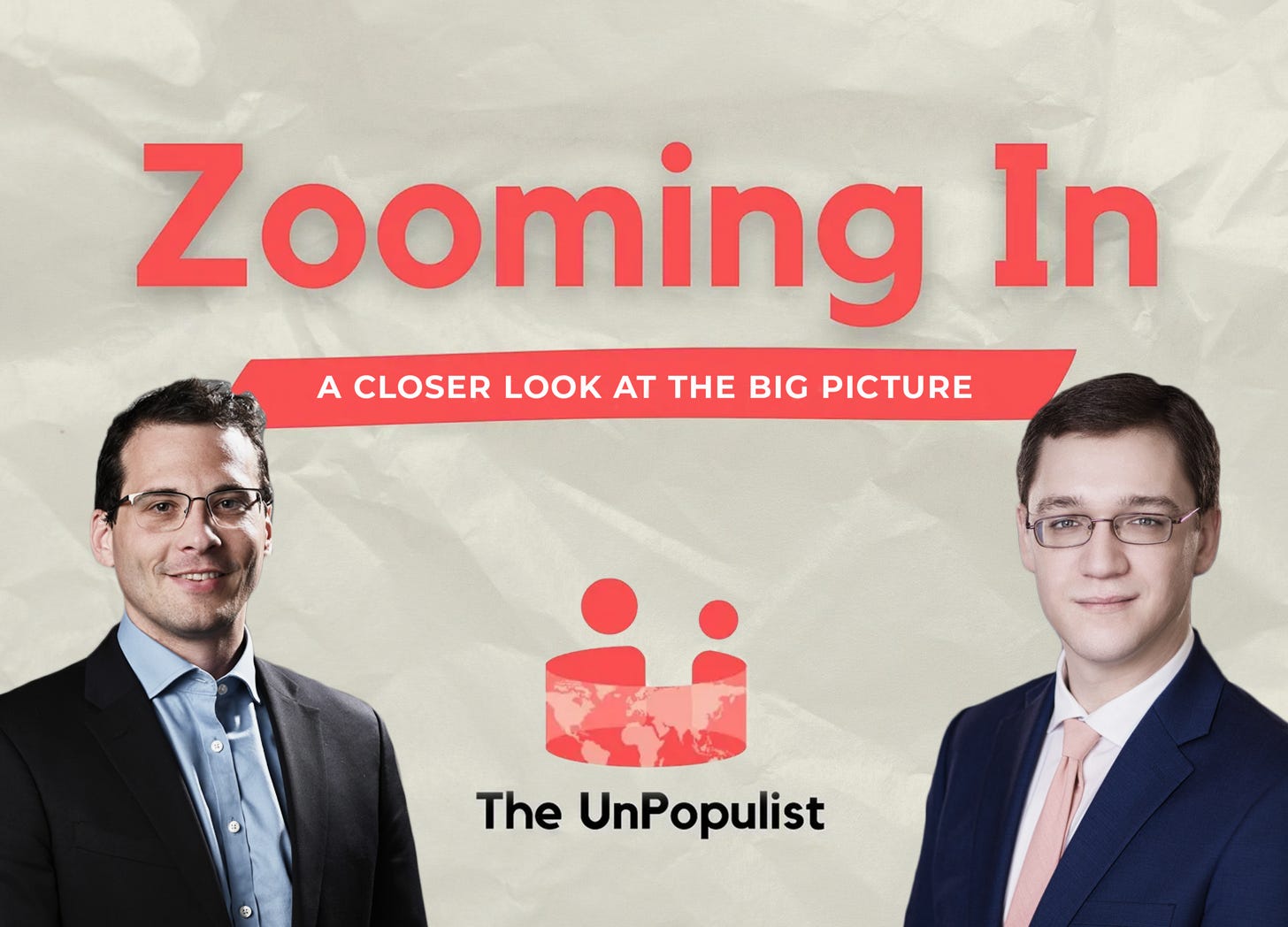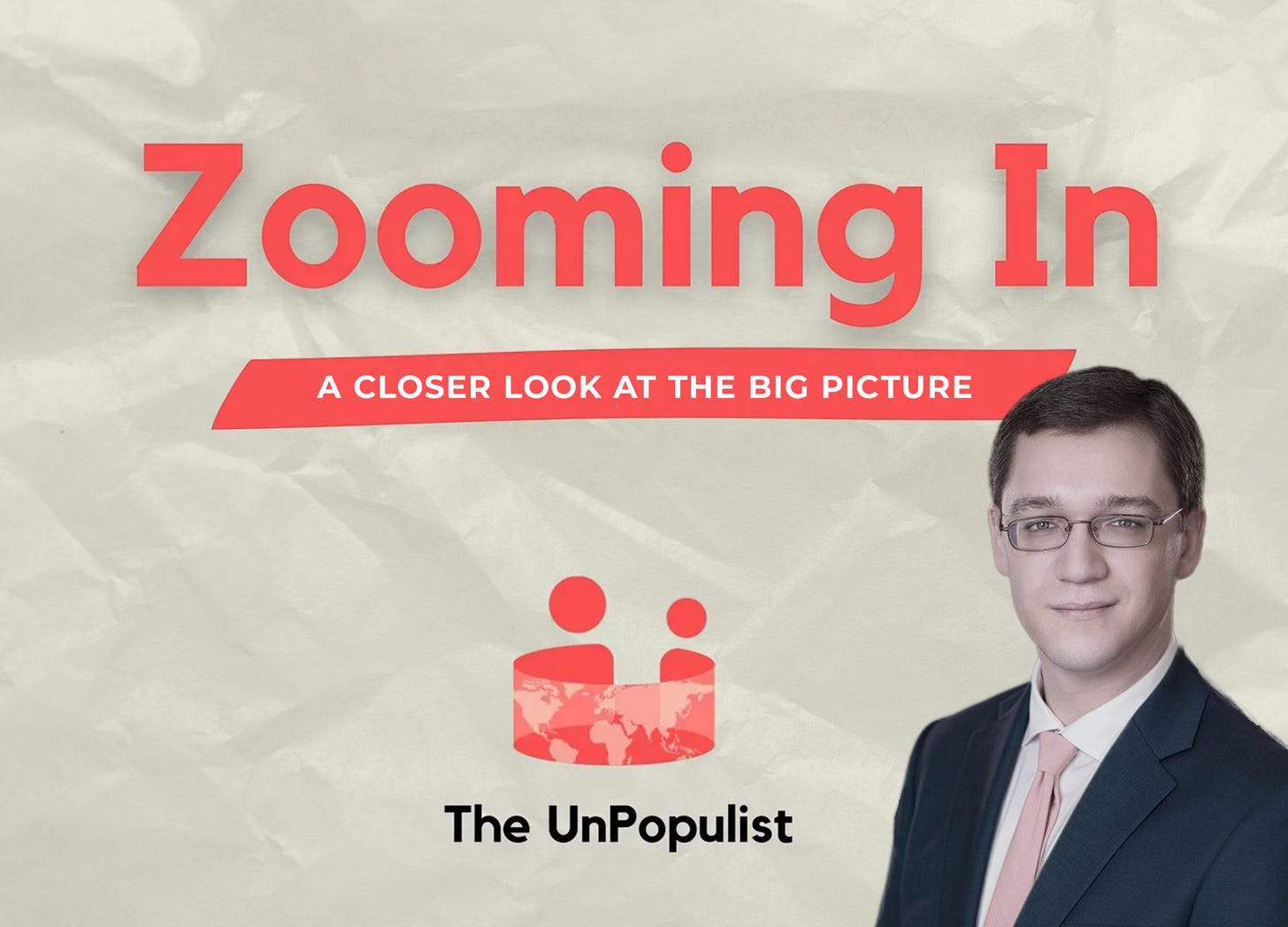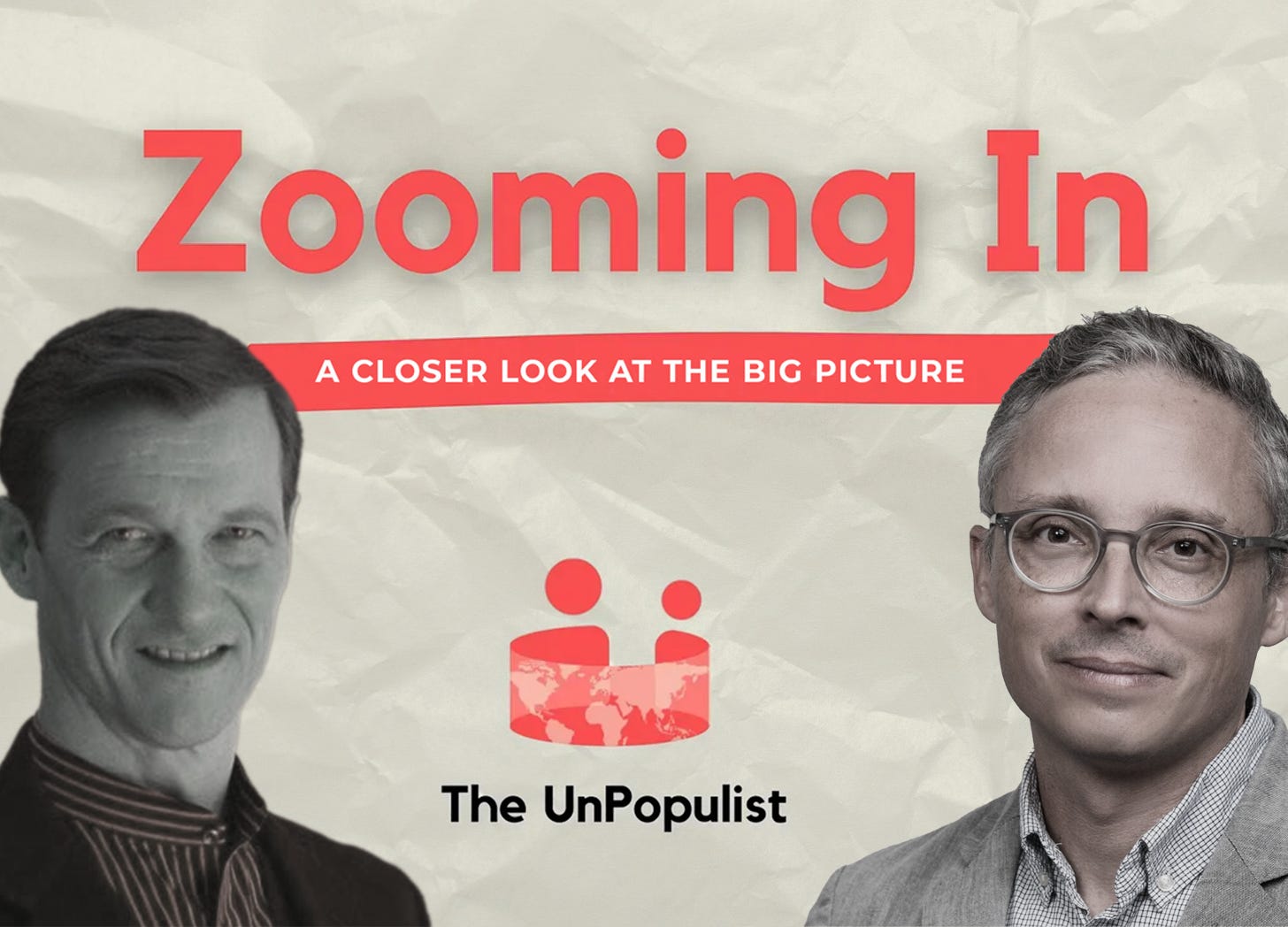Is Trump a Fascist or Something Else Entirely?: A Conversation with Nicholas Grossman
Description
Listen to Zooming In at The UnPopulist in your favorite podcast app: Apple Podcasts | Spotify | Google Podcasts | RSS | YouTube
Landry Ayres: Welcome to Zooming In at The UnPopulist. I’m Landry Ayres.
As the 2024 election draws nearer and Donald Trump’s second-term plans come into greater focus, critics of his, across the ideological spectrum, are torn as to whether Trump’s movement is continuous with historical fascism. Does the dreaded “f”-word apply to him? Or is it an unhelpful exaggeration?
On today’s episode, The UnPopulist senior editor Berny Belvedere reconnects with his former Arc Digital colleague and international relations professor at the University of Illinois, Nicholas Grossman. The two discuss the propriety of using historically-weighty labels in our public discourse today, where to situate Trump within the not-so-grand tradition of authoritarianism, and break down how the Heritage Foundation-powered Project 2025 would fuel further democratic backsliding. We hope you enjoy.
A transcript of today’s podcast appears below. It has been edited for flow and clarity.
Berny Belvedere: Nick, do you believe terms like “fascism,” “Nazism,” “communism” are overused today? If so, why do you think they are?
Nicholas Grossman: So, in a way they're overused and also not. “Nazi” came to be a word that just meant bad, the thing that we all agree on is bad, and can be used in very serious contexts and comedic contexts—like the Soup Nazi in Seinfeld, and all the running jokes and memes of Godwin’s law and “everything I don't like on the internet is Hitler” and anything else along those lines. So people do overuse it. But also, with “Nazi” in particular, it can reach a level where people then think that any lesson from Nazi Germany or any lesson from the 20th century more broadly is ipso facto wrong, that there's something inherently wrong about comparing the right-wing nationalist-populist movement that won an election and then lost power and then attempted a putsch and then reconsolidated and ran for power again, to America's right-wing nationalist-populist movement that won an election and then lost power by election and then attempted a putsch and then sought power again. That seems pretty ridiculous that you couldn't connect any of those.
As for “fascism,” with thinking of it as this thing nearly everybody agrees was wrong that happened in the 20th century, when people try to apply it more loosely to things that are, say, authoritarian but not necessarily fascist … that could reduce the power of the word. But I think at this point, people using the word like Joe Biden used “semi-fascism,” to describe Trump’s authoritarian project … I don’t think is unreasonable.
Berny: So when Biden used “semi-fascism,” how is it that that qualifier, “semi,” managed to successfully avoid the trap of requiring a perfect historical parallel while at the same time bringing in a term that has enough connotative heft to meet the gravity of Trump and MAGA's offenses? How is it that a word as simple as “semi” is able to successfully get us out of this jam?
Nicholas: You know, that's a really good point. I hadn't quite thought about it that way, but it does look like the “semi” modifier has threaded that needle where it's a way of indicating, “Okay, I'm not saying this is literally Hitler and that we are headed for World War III and another Holocaust.” I mean, to pick a kind of obvious example: When Hitler wrote Mein Kampf, there is explicit calls for genocide. In Trump’s largely ghostwritten books, you don’t see anything like the final solution for the Jews. That runs into the problem of, “No, you're being hyperbolic.” So “semi” makes it where, “I'm not saying it's exactly that. I'm saying it bears enough resemblance to that that we should think of it as serious and bad.” And given that I and many others do think of it as serious and bad, and in particular as anti-democratic and authoritarian, the “semi” adds a way to use a word that connects with a lot of people without running into those, “So you're saying this is literally Hitler” counterarguments.
Berny: As an international relations professor who has taught classes on terrorism, you’ve argued convincingly that misapplications of that word, “terrorism,” can have real consequences and that therefore applying the word well, in a more narrowly defined way, is really important. Is the issue with misapplications of the word “Nazi” or “fascism” on that same level, or not really?
Nicholas: You're right that I'm a stickler on the word “terrorism,” that it's something that I teach and have taught for a while, and I take issue with a common usage of it to be basically a synonym of “bad,” a synonym of “thing I don't like.” If you Google “Republican terrorists” or “Democratic terrorists,” you get millions of hits. I think it is important for us to be able to really understand that “terrorism” refers specifically to violent political actions targeted against non-combatants by non-state actors. It's important for conceptual clarity, but in particular for developing counter-strategies and executing them well.
I tend not to use “fascism” as well. I stick more to something like “authoritarianism” because the usefulness about it is: Trump’s project is clearly authoritarian and there’s no ambiguity about it. He’s calling for the termination of the Constitution, saying, “I’ll be a dictator”—he’s quite open about it. You could have judged it from actions, but also now from statements. Whereas with something like the word “fascism,” that leads to debates that are potentially distracting. So I think it’s a mistake to really fixate on the word, to be very insistent upon it.
My concern with the word “terrorism” is not throwing it around so often and so loosely that it loses its power. And I feel that way about “fascism” as well—as a word that we shouldn't throw around loosely. I'll give you a recent example of this. When some people were reacting to police shutting down various campus protests, some cases seemed, to me and to many others, like an excessive use of force, just the sheer number of manpower and police presence that was being used. I saw comments along the lines of, “Why would you be concerned about fascism? Fascism is clearly already here.” And, no, that's really not it. So, the police arrested a bunch of people and, if any of them are charged with a crime, they'll have a chance to defend themselves in court. And that maybe is bad—certainly somebody can criticize it—but it's also not fascism. There's a danger of a “boy who cried wolf” effect where, if you're constantly calling anything you don't like this maximal bad word, then when something that is actually like that thing comes around, people are less inclined to believe you.
Then again, the lesson of “The Boy Who Cried Wolf” is not that wolves aren't real and you don't need to worry about them.
Berny: We're going to focus on more than just the term “fascism” here in this discussion, but I want to stay on the term for just a sec because it is a prominent issue in our discourse that keeps popping up.
So, we humans tend to be incorrigibly committed to clarifying our world by describing it, by capturing it linguistically. But there's an inherent limitation to doing that that seems to always rear its head. Calling something a “Nazi” or “neo-Nazi” initiative helps to situate it within a particular historical movement. But the downside to that is historical episodes, by their very nature, are in the minds of many people tethered to particular circumstances, the ones that they temporally existed in. So history gives us these movements that have a fixed shape. And that can somewhat frustrate new applications of those labels.
The part that a lot of people are underestimating is just how incredibly powerful institutional authority is. This idea of, it's norms all the way down … the idea that powerful people should follow the law is a norm. It is only a law to the extent that the people in power enforce it. And if the people in power, just enough of the people in power, don't enforce it, then it might as well not be a law. — Nicholas Grossman
So to continue with the Nazi example, when some form of discourse today, whether it's a meme or a trope, or some rhetoric that a politician uses, gets characterized as “Nazi” or “neo-Nazi,” skeptics who don't detect a full-blown, genocidal antisemitism in that discourse will suggest that the “Nazi” label is overblown or being unfairly applied. I think the same thing happens, though at a lower scale, with “fascism.”
My own take is that proponents and skeptics alike of these terms have in mind different aspects of those movements when they apply


